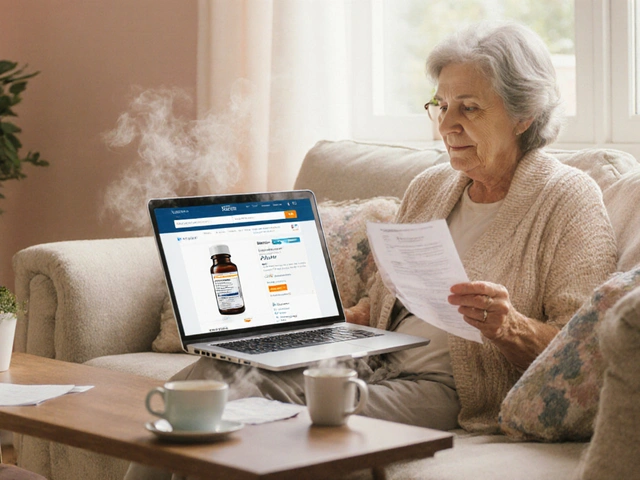Pets: Practical Tips for Meds, Safety, and Buying Online
Giving a pet the wrong medicine or wrong dose is more common than you might think—and it can be dangerous. This tag gathers clear, useful articles about pet meds, common drug interactions, buying online safely, and how to spot real emergencies. You’ll find quick checks you can do at home, plus when to get professional help.
How to buy pet meds online safely
Only buy pet medicine from sites that clearly require a veterinarian’s prescription for prescription-only drugs. Look for a physical address, phone number, and licensed pharmacist or vet contact. Avoid sellers that promise miracle cures or dramatic discounts with no prescription—those are often scams or counterfeit products. If a site lets you upload a scanned prescription, confirm the email or phone contact before paying.
Check reviews on independent sites, not just the seller’s page. Verified pharmacy seals and a visible privacy policy are good signs. For flea, tick, and heartworm products, buy brands your vet recognizes. If the price looks too good to be true for a well-known brand, suspect a fake product.
Everyday care: dosing, storage, and red flags
Always dose by weight, not by intuition. Pet doses often scale with kilograms or pounds; a tablet meant for a 70 lb dog can be toxic to a 7 lb cat. Use the measuring syringe or dropper that comes with liquid meds—teaspoons and tablespoons are too imprecise.
Store meds in a cool, dry place away from pets and children. Keep original packaging so you have the label, expiration date, and batch number. Dispose of expired or leftover meds safely—ask your vet clinic or local pharmacy how to return or dispose of them.
Watch for these red flags that need immediate vet care: difficulty breathing, collapse or extreme weakness, repeated seizures, persistent vomiting or diarrhea (especially if bloody), sudden severe swelling, or poisoning signs after eating a human medication or toxic plant. When in doubt, call your vet or an emergency clinic—the cost of checking is usually far less than the risk of waiting.
Some human antibiotics and drugs are used in pets under veterinary guidance, but never give your pet human prescriptions without clear vet instructions. Interactions and side effects differ between species. If you find articles on pet use of drugs like antibiotics, use them as research points to discuss with your veterinarian—not as DIY dosing guides.
This tag collects articles on specific drugs, interactions, and alternatives that relate to both people and pets. Read, bookmark reputable pages, and always confirm with your vet before making changes to treatment. Safe choices keep your pets healthy and your peace of mind intact.

Myeloma and Pets: The Benefits of Animal Companionship
Myeloma is a difficult journey, but I've found solace in the companionship of my pets. Their unconditional love and support have proven to be invaluable during my treatment. Studies have shown that animal companions can help reduce stress, lower blood pressure, and even boost the immune system. My pets have not only provided emotional support, but also encouraged daily exercise and social interaction, improving my overall well-being. I can truly say that my animal companions have played a crucial role in helping me cope with my myeloma diagnosis.
Read More


